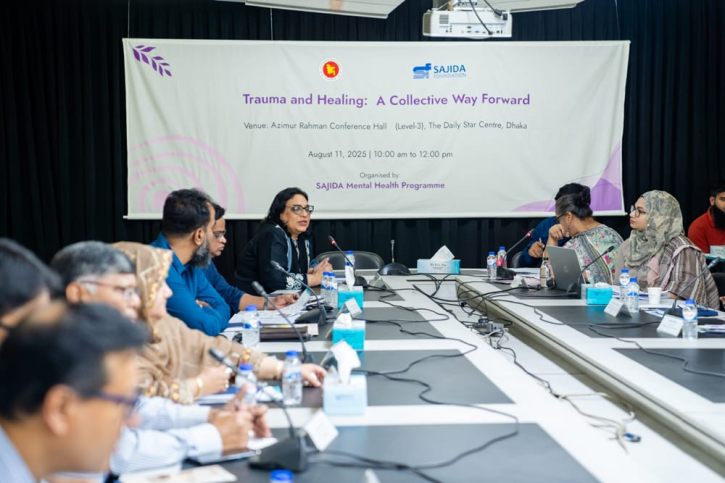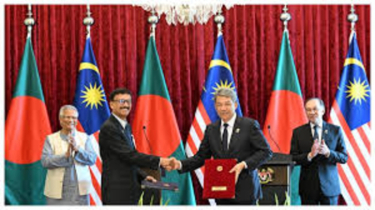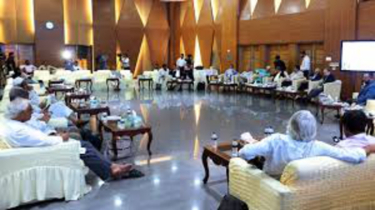
Experts have suggested increases in allocation for mental health services, integration of the services into general health services, and greater cooperation among stakeholders to expand mental health services.
Citing research data, they said investment in mental health services yields a return of about 10 times the investment in 10 years.
The experts were speaking at a roundtable discussion titled "Trauma and Healing: A Collective Way Forward" organised in Dhaka on Monday (August 11) by SAJIDA Foundation.
The discussion highlighted the results of a survey conducted on those injured in the July-August movement, which showed that 28 percent of the injured suffered from depression, 20 percent from anger, 16 percent from anxiety, 16 percent from fear, and 15 percent from post-traumatic stress disorder (PTSD).
It was highlighted at the discussion that more than 92 percent of people with mental health problems in Bangladesh do not seek health services.
SK Muhammad Atiqur Rahman, Deputy Director at the National Orthopaedic Hospital and Rehabilitation Institute (NITOR), stressed the need for setting up psychiatry departments in all major healthcare facilities in the country and increasing the allocation in this sector.
Citing data from the World Health Organisation, its Programme Manager (NCD and MH) Dr Ishakul Kabir said if 504 million US dollars are invested in mental health care, the return goes up to 5,337 million dollars in 10 years.
Zahida Fizza Kabir, CEO of Sajida Foundation, said that by providing services to those injured in the July-August movement, her organisation has proven that it is possible to provide high-quality mental health services at a low cost. She added that government and private institutions should work more closely to expand mental health services.
Mentioning that Bangladesh is prone to natural and man-made disasters, the Sajida Foundation CEO said mental health service should be a part of disaster response.
Dr SM Mahmudur Rashid, Assistant Director (Hospital) at DGHS, expressed concern that mental health remains one of the most neglected areas in public health. He highlighted that having only two specialised hospitals for mental health services is far from sufficient to meet the needs of a large population, especially when there is a 92 percent treatment gap.
Prof Dr Nahid Mahjabin Morshed, Professor at Bangladesh Medical University (BMU) emphasised the urgent need for developing more mental health professionals in Bangladesh to address the growing demand for mental health care. She stressed the importance of ensuring standard ethical guidelines and professional practices in service delivery.
Prof. Kamal Uddin Ahmed Chowdhury, Programme Director of Nasirullah Psychotherapy Unit (NPU) at Dhaka University, urged the government to give greater priority to mental health implementation, community-based interventions, and the development of paraprofessionals. He also stressed the need for finalising the Standard Operating Procedure (SOP) for emergency mental health response.
Monira Rahman, Country Director at Innovation for Wellbeing Foundation, said a holistic approach needs to be taken and a greater public-private partnership be forged for offering better mental health services.
Other speakers at the event included Syed Md Nuruddin, Advisor (Sexual and Reproductive Health and Rights) at Plan International, Motiar Rahman, Assistant Director at Micro Finance Regulatory Authority (MRA), Dr Mohammad Sohel Shomik, Deputy Project Coordinator (Nutrition Research Division) at icddr,b, and Md Fazlul Hoque, Deputy Chief Executive Officer at Sajida Foundation.
Farjana Sharmin, General Manager at Sajida Foundation, presented the study report at the roundtable.
TH

.png)







